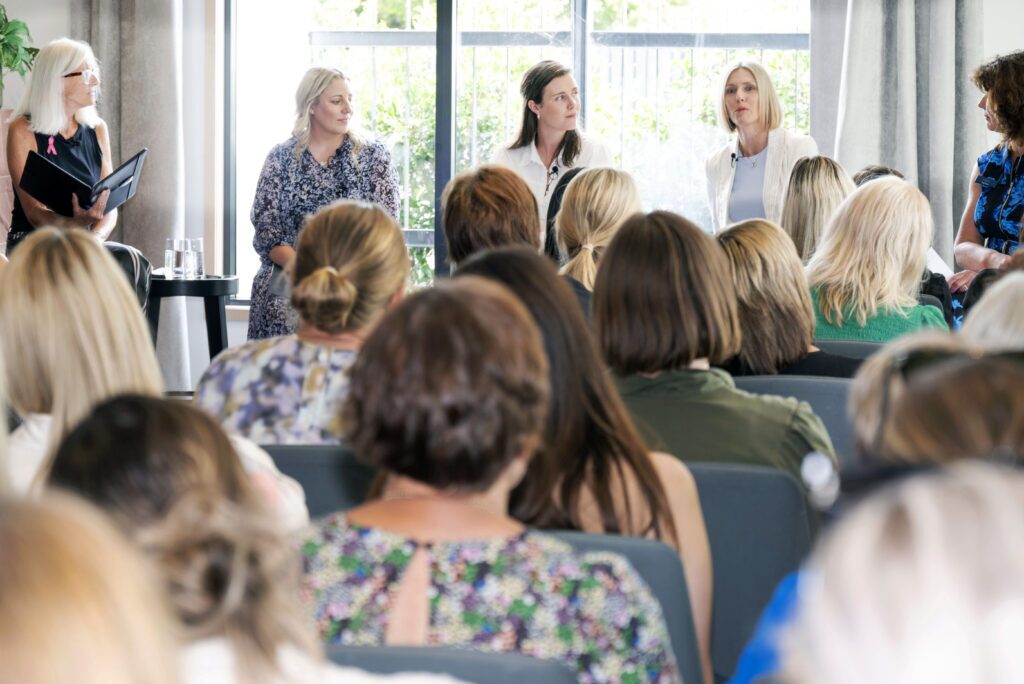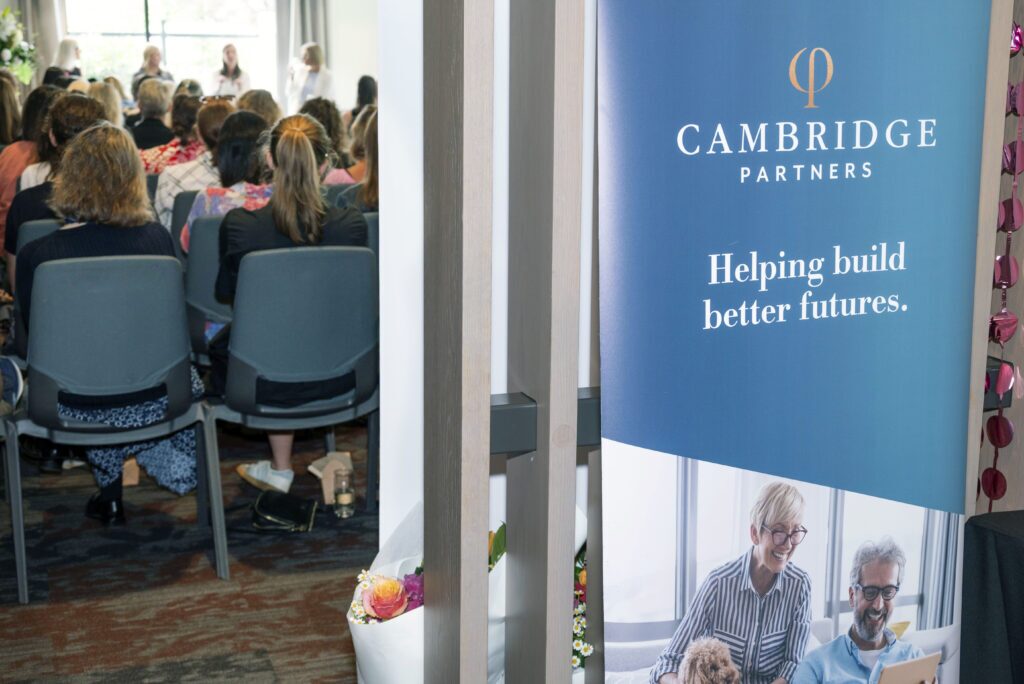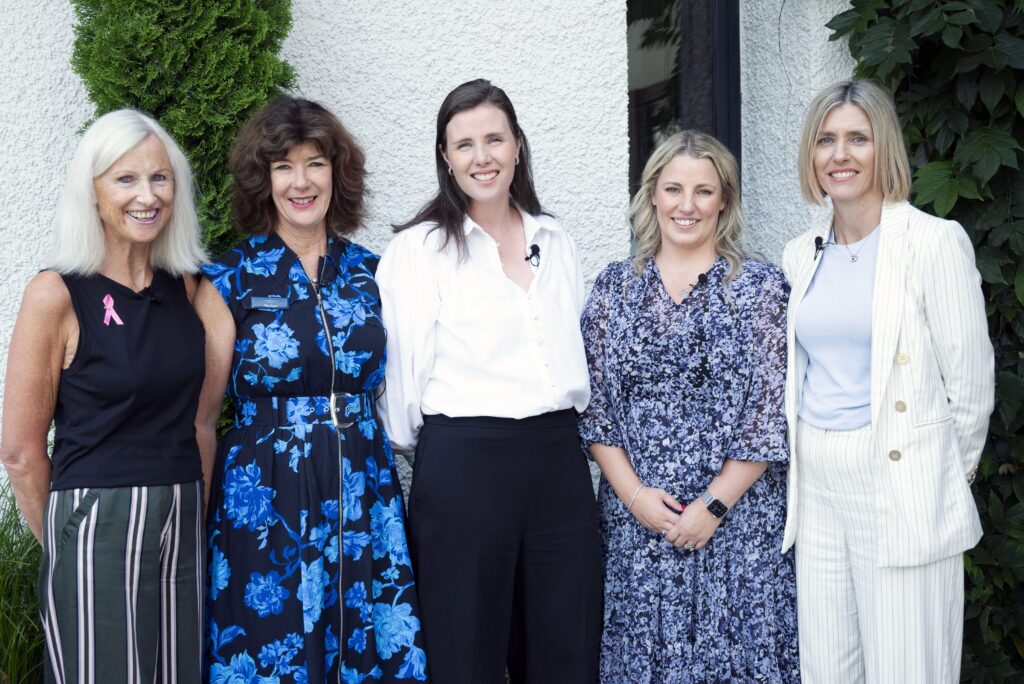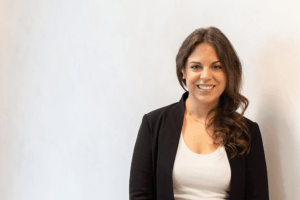In celebration of International Women’s Day, Cambridge Partners recently hosted an insightful panel discussion focused on women’s financial planning and investing. The event brought together a diverse group of experts, including financial advisers Pip Kean, Margot Lensen, and Ashley Salt from Cambridge Partners, alongside Leeann Watson, CEO of Business Canterbury. Hilary Muir from The Breeze was MC.
The discussion highlighted a crucial message: women need to take control of their financial futures, seek advice early, and have open conversations about money. As Pip noted during the event, “Together as women, when we share and help each other, we become stronger, we become braver, and it helps people get ahead.”
Women as Investors: Strengths and Challenges
One of the most compelling insights from the panel was that women often make excellent investors. Pip referenced that often women investors make better investors than men.
“We do make good investors,” Pip explained. “The first reason is that we take our time. We tend to want to know what’s under the bonnet. It’s like when we go to the grocery shop, we look behind the label and have a look at what’s on that packet.”
Women’s patience (including trading less) and thoroughness in research can lead to better investment decisions. However, the panel acknowledged that confidence remains a significant barrier for many women in financial matters.
KiwiSaver and Retirement Planning
The discussion highlighted concerning gaps in women’s retirement savings, with several factors contributing to this disparity.
“Typically, women have less in their KiwiSaver than men do,” Margot explained. “There are a few reasons for that, and obviously, one of them is that a lot of the time, women take time off work to raise families. Another one is the gender pay gap, which is currently 8.2% in New Zealand.”
The panel emphasised the importance of being proactive with KiwiSaver management. Ashley encouraged attendees to review their KiwiSaver settings regularly:
“If you could go away today, and if you do have KiwiSaver, review what strategy it’s on, and look at what fees are being charged. There’s a helpful website, sorted.org.nz, to compare all the KiwiSaver funds.”
Retirement planning becomes even more critical, as women typically live longer than men. Pip noted that NZ Super provides a woman on her own about $27,000 a year. According to the Retirement Expenditure Guidelines, couples living in cities need around $90,000 annually for a comfortable lifestyle with choices, while the NZ Super rate for a couple who both qualify is around $42,000.
Women in Business and Leadership
Leeann Watson, as the first female CEO in Business Canterbury’s 165-year history, offered valuable perspectives on women in leadership roles. She emphasised the importance of recognising and leveraging transferable skills:
“There are so many amazing skills and attributes that we pick up as women in every facet of life, and so often we don’t fully think about those as transferable or relatable skills that we have,” Leeann noted. “You think about, for those of you in the audience who are parents, what you have to do in order to get out of the house in the morning is no mean feat. The influencing skills you have to get your kids off technology, you know, are very transferable skills.”
Leeann encouraged women to recognise these skills and apply them in professional settings. She also stressed the importance of putting oneself forward for opportunities:
“I think we each have a responsibility to be brave and courageous, to actually put ourselves forward, really back ourselves,” Leeann advised. “Please do not sit back and wait to be asked. If you’ve got an interest in something and even if you don’t necessarily have the skills but you’ve got an interest, ask to be part of it. Be curious, be nosy.”
She also highlighted that leadership isn’t confined to formal positions: “A lot of people think that you have to be in a position, in a management or leadership position, to influence and make decisions. But actually, I’m a great believer that any of you in this audience and anyone in life can be a leader. And it’s actually about how we engage with other people, how we make people feel, the conversations that we have, how we show up each and every day.”
Having Financial Conversations
Breaking the taboo around money discussions emerged as a key theme throughout the event. The panel encouraged women to normalise conversations about finances with partners, friends, and family.
“Having conversations with friends about what the maternity leave policy is, what their salaries are, how they are asking for pay rises, or what their KiwiSaver is… by making it normal to talk about money, it will help everyone,” Margot advised.
“Women often miss the confidence to ask or put themselves forward,” Margot shared. “Even if you think that maybe you’re not quite qualified or you might not get it, it’s the confidence to back yourself and apply or ask for the pay rise.”
For discussions at home, Margot suggested scheduling dedicated time: “Don’t spring it on your partner. Put time in the calendar and the diary, and know that’s what you will talk about. Go in knowing some bullet points or whatever you want to discuss in that conversation.”
Pip shared her approach of having an “AGM” with her husband at the beginning of each year to review their financial position and set goals for the coming year.
Taking Action for Your Financial Future
The event concluded with practical advice for women at all stages of their financial journey. Ashley invited attendees to book a 15-minute call with a female adviser at Cambridge Partners through their Women’s Wealth page.
The panel emphasised that seeking professional advice is valuable at every stage of life, not just for those with significant assets.
As Pip summarised, “I just hope today you feel a little bit braver, a little bit stronger, a little bit more confident and that you pay attention, ask some questions, and just come and see us for a no-obligation conversation.”
The message was clear: financial empowerment begins with education, conversation, and confidence. Whether you’re reviewing your KiwiSaver, planning for retirement, or considering a career move, taking control of your financial future starts with a single step.




